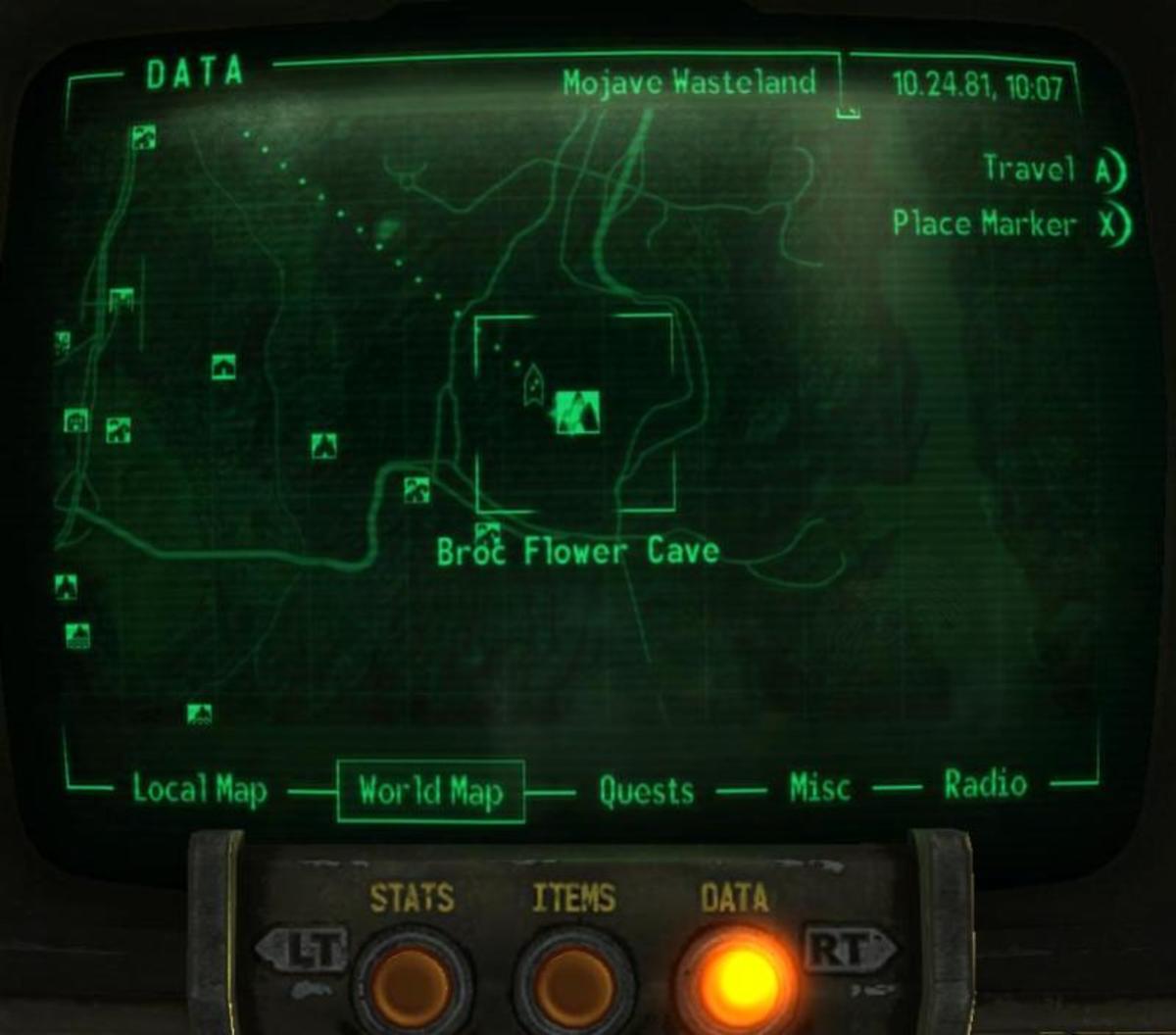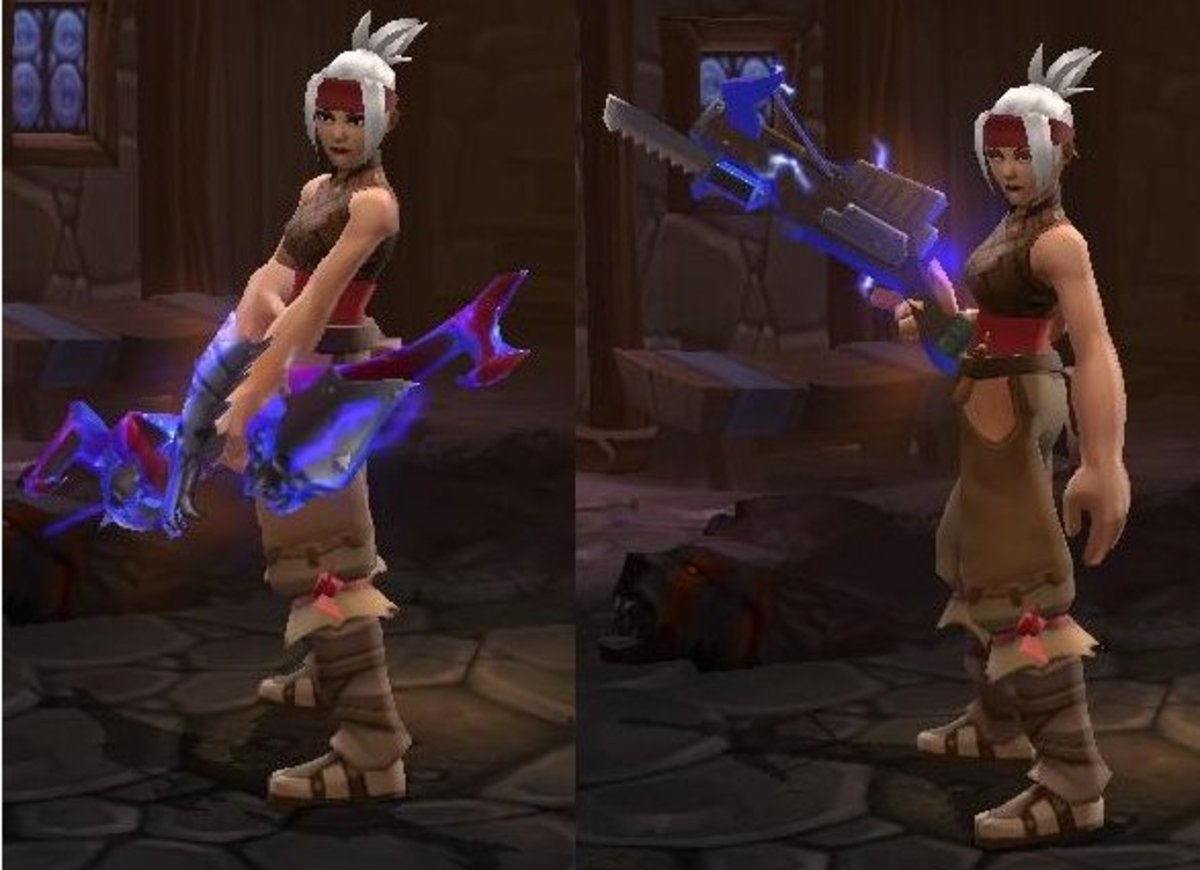How to Make Video Games, Part 3: The Career Gamer

In the last hub, I talked about the Visionary's skill tree. Visionaries tend to approach game design from an artistic perspective: their goal is to share their artistic vision with others. Career Gamers tend to come at game design from the other end of the spectrum: from a desire to share their love of games in general. Career Gamers may have their own artistic vision and their own ideas for games, but for a Career Gamer, making ANY game is better than sitting around daydreaming about making some ideal game in the future, "when they're ready". Visionaries are prone to thinking instead of doing, and are much more selective about the particular games that they will work on. Career Gamers tend to be much more practical and willing to pitch in for any game concept that they think has a shot at succeeding.

The Career Gamer's Path
Career Gamers tend to have the most stable, clear-cut path: get a job in the industry, any way you can. Career Gamers are the ones who consider a good education an important part of the process, they are open to specializing in a very narrow aspect of game design to become the best at what they do, and they are willing to take any job that gets them in the door. These are the people who relocate to go to a great game design school, then move again to be close to the best studios. These are the people who work three part-time jobs to pay the bills while they're polishing up their demo reels and hand-delivering their resumes to game studios to get a job as a game tester. These are the people who are *serious* about games. Any games.
The good news is that the game industry is huge and diversified: where else can you find artists, business people, and engineers working in the same office? If your goal is to get into the industry, then your best bet is to find something you're good at and stick with it. If there isn't anything you're particularly good at, just pick something you enjoy doing and keep doing it until you're good enough to get paid to do it. If you're artistic, become the best artist you can be (the industry needs both 2D and 3D artists, so there is a lot of room for choice here). If you're of a more scientific and logical bent, become the best programmer you can be. If you're musically inclined, become the best composer and sound producer you can be. If you're a natural story-teller and game designer, become the best writer and level-designer you can be (the two disciplines are much more similar than you might think).
The Truth About Game Testing
One thing I didn't get into in this hub though I wanted to is game testing. Game testing is a real job, and people do get paid (sometimes very well) to do it. But don't trust any online, 'get paid to play games at home' scams! If someone is charging you money, don't believe anything they tell you! You get game testing jobs the same way you get any other job: by writing a resume and applying in-person at a game studio. Many of these online scams are charging you for a list of game companies and phone numbers that you can get for free by visiting a studio's or publisher's web site. Just go to a company's site and look for the 'careers' link. Don't pay people to do this for you.
For a kick-butt explanation of the job, check out miss_tiana's hub: How to Be a Video Game Tester.
Making High School Work for You
If you're just starting out, you're going to want to take a good hard look at your options when it comes to higher education. If your high school offers game design or computer science classes, all the better. Take those right away. Depending on your interests the following are also good courses to take: English and creative writing if you want to get into game design or writing game narratives (really, though, there's no way to overdo your communication skills); math if you plan on getting into the programming side of things; visual arts if you plan on being a concept artist, 3d modeler, texture artist, or animator; and drama, if you plan on getting into the field as a voice actor and/or motion capture actor. If your long term goal is to be a game designer, producer, or publisher, then you're going to want to take business courses as well. Take courses with an eye on your long term goals: do some research on colleges and universities that offer game-related courses and see what their requirements are. Don't forget that game publishers and developers need other types of people as well: human resources, marketing professionals, business analysts, etc. There is more than one way to skin a virtual cat.
Also, keep in mind that there are almost as many kinds of games as there are people making them. Your experience in other areas that don't seem game-related at first can come in handy. For example, being good at sports can help you get into one of the biggest game genres there is. Knowing a lot about cars will help you design better racing games. Knowing a lot of history will help you with historical games (and there are tons of those!). The point is, do the best you can with what you have. You never know when that odd hobby or interest is going to pay off. Get off your butt and do something other than play games once in a while!
Game Design Schools
For a great list of schools with all the information you need to get in contact with them, check out the Game Career Guide.
Don't forget to do your background checks, no matter how good they sound!
Choosing a Good Game Design School
When choosing your school, there are a couple of things to keep in mind. First of all, obviously, is the quality of the education offered by a school. The very first thing you need to find out is if a school is accredited. An accredited school is a school that is recognized by the government and authorized to issue diplomas in a field. There are plenty of 'game design schools' out there that are not accredited. That doesn't mean that the education you get from them is worthless (though sometimes it is) only that you won't be able to use the credits you earn in these schools toward credit in other schools and some game developers and publishers might not recognize it as a valid school.
The second thing you need to think about is where the school is located. It's great if you can find a school close to home, but most people won't be that lucky. Ideally, you're going to want to find a school that is located close to the college where you are getting your diploma. Not only because it opens up the possibility that you could get a job there to help pay for school and get your foot in the door, but also because there may be connections between the school and local studios and publishers that may make it easier for you to find a job after you graduate.
If you're thinking about taking an online course, be very, very careful about the school that you choose. Distance education isn't always a bad thing, but there are a lot of non-accredited schools out there that are only interested in collecting your money and your education will suffer for it. My recommendation is to do a thorough background check on any school you're considering applying to, whether it's online or a more traditional brick-and-mortar school. You can often find very candid reviews of students' experiences online by doing a Google search on the "name of your school reviews". Be aware that representatives of a school may post their own counter-reviews to offset bad press, so read the reviews carefully to get a feel for how honest it is. You also have to consider the possibility that a disgruntled student or former employee may trash talk a school online as an act of vengeance.
Game Artist Communities
These are only some of the great CG game artist communities you can find online. They can be a fantastic resource with a wealth of experience and insight.
Creating a Great Demo Reel or Portfolio
While you're in school, you'll probably be working on your demo reel or portfolio. The demo reel is probably the single most important part of your long-term strategy and there is simply no way you can spend too much time perfecting it. The game industry is one of those funny industries where the people handing out the jobs hold ability in higher regard than education or prior experience. If you can wow a developer with your demo reel, you're pretty much in, barring obnoxious personal characteristics (like having a huge ego). Remember that a lot of these people don't have diplomas hanging on their walls; they've earned their right to make decisions about who to hire by demonstrating their ability to execute a task well. If you can show them you're up for the same challenge, they'll be interested in talking to you.
Even if you don't get a job in the industry straight out of school, there is no better way to get a job than by perfecting your demo reel. The game industry is dynamic and demands that you be ready and willing to continually improve your skills and expand your skill-set. Your demo reel is your proof that you have not only the ability, but the discipline and the proper attitude to work in this industry.
Game Industry Books
Writing a Great Resume
There are a million sites that will teach you how to write a great resume, so I don't need to go into any specifics here, but I would like to make a couple of points.
First of all, no one is going to trust you to bug-test their game if your resume is riddled with typos, spelling mistakes, and poor grammar! Attention to detail is a must in this industry, so don't slack on your resume!
Second, it pays to do your homework and research the company that you are applying to so that you can tailor your cover letter accordingly. Maybe you don't need to know who the lead designer's favorite superhero is, but, all things being equal, the guy who is familiar with the company's products and area of expertise is more likely to get the job.
Third, don't go in blind. Take the time to find out who does the hiring for your position (lead artists and technical leads, for example, often do the hiring for their own division), who to submit the resume to, and the best time to submit it. These jobs are in high demand, so don't cut corners; you're going to be competing against plenty of people who took the time to figure all this out.
While we're on the subject of demo reels and resumes, I recommend you get yourself a web site to show them off to their best advantage. Be warned, however, that a poor web site can hurt your odds of getting a job the same way a poor demo reel or resume can. Show prospective employers you care by taking the time to set it up right or have a professional set it up for you. Make it easy to navigate, only show your best work (people tend to average out the quality of your work subconsciously), and make sure that there aren't any typos! Show the world that you want to be treated like a professional by being a professional!

Get Involved with the Online Game Community
For help with your demo reel, portfolio, resume, and web site, there is no better resource than a forum like Polycount. Polycount is frequented by industry professionals who get paid to do what you want to do. Many of them are industry veterans whose work you will recognize. Pay attention to what they say! Read through the threads and see the kind of advice that's being given. Try out the techniques that they're recommending. When you're ready (and you should be by the time you're done school or before) start your own work in progress threads and ask for feedback. Some of it might hurt, but all of it is good for you. Think of the negative criticism you receive as the burn you get from your muscles when you have a good work out: no pain, no gain! When professionals criticize your work it's because they think you have something worth contributing and want to help you get there. You don't get mad at your muscles when they get sore, do you? So don't get mad when people criticize your work. Have a professional attitude toward criticism and you will go far.
Of course, Polycount isn't the only place you can go to be part of the community. Most game developers have their own forums and game wikis so if there is a company you really love, don't be afraid to hang out there and get a reputation as an informed and helpful team player. You learn a lot about the games, and even more about what players like and don't like about their favorite games. Having a good community presence can help you make informed decisions when you do get that job in the industry.
If you can't get a job right away and your demo reel doesn't seem to be working for you, get involved with a mod team or indie game dev team to gain experience and to learn about the game development cycle. As I described in detail in my last hub on this topic, creating a mod or indie game can be a great way to learn how to make your own games and can give you something else to put on your resume and into your portfolio. Build it, and they will come!
Game Industry Conferences
Game conferences are a great way to get in touch with industry professionals and stay at the forefront of cutting edge games.
Attend Game Conferences
If you can manage it, the other thing you can do is go to game industry conferences and met people who work in the industry. If you can put a face to your name and portfolio you're much more likely to be remembered when it comes time to go looking for new blood. Many of these conferences require that you be employed in the industry already, either as a developer or as a journalist, though sometimes you can just pay for a ticket. Entrance requirements and fees change every year, so be sure to check out their web sites for a current list of requirements and rates.

Preparing for an Interview
When you do finally get called in for that magical interview (though some companies call and do interviews over the phone as well), be prepared! Many times, there will be tests involved to see if you really know what you claim to know so make sure you keep your skills up to par. Familiarize yourself with games that the studio has published in the past, and with their current projects. Find out what projects the interviewer(s) have worked on, if you can. Keep abreast of industry news by reading magazines (online and print) and by playing games. Show them that you are an informed and prepared person. You know who else is informed and prepared? Your interviewer and the people who work there! Make the connection in the interviewer's mind; show them that you belong, that you are practically a part of the team already. (But don't be too informal! This is a job after all, and they need people who know when to play and when to work. Hint: in an interview, they want to see your most professional side.)
More Great Resources
There's only so much you can say about the subject in one hub, so I'm going to point you in the direction of more great information. Remember: knowing is half the battle! Good luck, soldier!
- Gamasutra
- Gamedev.net
- Sloperama







